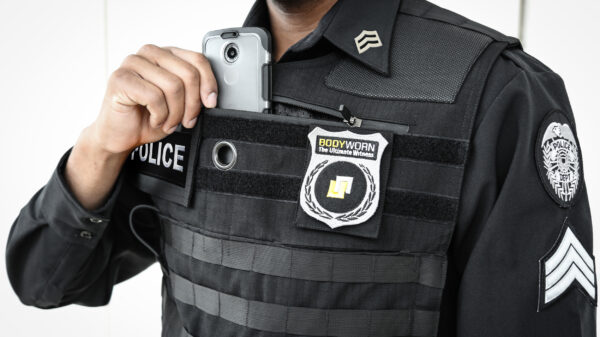ACLU of Mississippi releases “Striking the Right Balance,” a report analyzing law enforcement body-worn camera policies in Mississippi
Jackson, MS - The American Civil Liberties Union of Mississippi today released a detailed report that highlights the lack of uniformity in the way law enforcement agencies across the state deploy body-worn cameras. The report recommends a statewide policy meant to standardize the use of police body-worn cameras (BWCs).
“For body cameras to promote trust between police and the community, police must use them in a way that carefully balances interests in police accountability, government transparency and privacy. In the policies we analyzed, we found inconsistent implementation guidance, a lack of privacy safeguards, and bare minimum accountability provisions,” said Blake Feldman, ACLU of MS Criminal Justice Reform Advocacy Coordinator, and primary researcher and author of the report.
The report found key gaps in policies across the state. Of the 65 law enforcement policies reviewed, zero require individuals to be notified that they are being recorded; less than 20% require officers deactivate the camera when entering a home if the resident requests the camera be turned off; no policies provide provisions to protect victims of domestic violence; and most do not lift the activation of BWCs in school settings.
The ACLU of Mississippi is hopeful that the Mississippi Legislature will consider the data this report reveals, and pass a law outlining standardized policy guidance. The report does not mandate law enforcement agencies utilize body-worn cameras. The ACLU of Mississippi acknowledges that they are only tools — whether they are helpful or harmful depends on how they are used. Strong policies are crucial to ensure they further the goals of improved transparency and accountability, better policing, and greater trust in law enforcement.
“Used properly, body-worn video cameras can help deter police misconduct and uses of force, provide evidence to hold officers accountable when misconduct does occur as well as exonerate wrongly accused officers, and help the public understand how police operate. The lack of uniformity across the state makes it clear that the state must establish certain minimum criteria for policies governing the use of BWCs by agencies choosing to deploy them,” said Jennifer Riley Collins, ACLU of Mississippi Executive Director.
The report provides a model policy that strikes the right balance between police accountability and protection of privacy.
The ACLU of Mississippi obtained the local policies for its analysis through a Freedom of Information Act request sent to 147 law enforcement agencies in Mississippi.
The ACLU of Mississippi’s full report, as well as the 65 local policies, is available at:
###
Related Content

ACLU Statement on JPD’s Deployment of Body-Worn Cameras
Stay Informed
Sign up to be the first to hear about how to take action.
By completing this form, I agree to receive occasional emails per the terms of the ACLU’s privacy statement.
By completing this form, I agree to receive occasional emails per the terms of the ACLU’s privacy statement.

